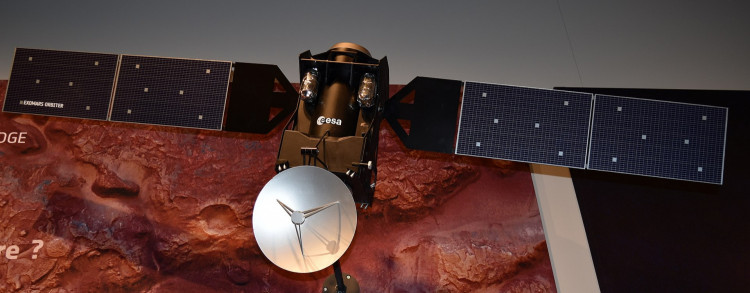It's official. Russia won't be taking part in Europe's Mars rover mission to look for life when it takes off in the late 2020s.
As part of a larger project dubbed ExoMars, the European Space Agency (ESA) had been developing that mission in collaboration with its Russian equivalent, Roscosmos.
The Rosalind Franklin rover was supposed to take off on a Russian Proton rocket from the Baikonur Cosmodrome in Kazakhstan, a facility managed by Roscosmos and the Russian military. A Russian-built lander named Kazachok, from which Rosalind Franklin was also planned to land and be launched.
However, after Russia invaded Ukraine in late February, ESA halted Russian participation in the rover project. Josef Aschbacher, the director of the ESA, today declared that the suspension would now be escalated to a termination.
The ESA Council confirmed during a meeting on Tuesday (July 12) "that the circumstances which led to the suspension of the cooperation with Roscosmos - the war in Ukraine and the resulting sanctions - continue to prevail," according to Aschbacher's tweet on the matter.
"As a consequence, Council mandated me to officially terminate the currently suspended cooperation with Roscosmos on the ExoMars Rover and Surface Platform mission. New insights on the way forward with other partners will come at a media briefing on 20 July, details to come," he added in another tweet.
Of course, this choice has significant effects on the mission. Rosalind Franklin, for instance, was supposed to launch in September, but mission team members have said that a launch before 2028 is now doubtful due to the requirement to locate a new rocket and a new landing platform. (Only once every 26 months do Mars and Earth correctly align for interplanetary launches.)
The ongoing Russian invasion of Ukraine has caused many other Russian space alliances to deteriorate or break up. For example, Russian rocket engines are no longer sold to American corporations, and the French company Arianespace no longer routinely launches satellites into orbit using Russian-built Soyuz rockets.
The two-phase ExoMars program was a result of a lengthy relationship between ESA and Roscosmos. The European Trace Gas Orbiter (TGO) and Schiaparelli landing demonstration, which was launched toward the Red Planet on a Russian Proton rocket from Baikonur in March 2016, was the focus of the program's first phase.
TGO successfully landed in Mars' orbit and is still exploring the planet today. In October 2016, Schiaparelli, a mission designed to test landing technology before the arrival of the ExoMars rover, crashed while attempting to touch down.






